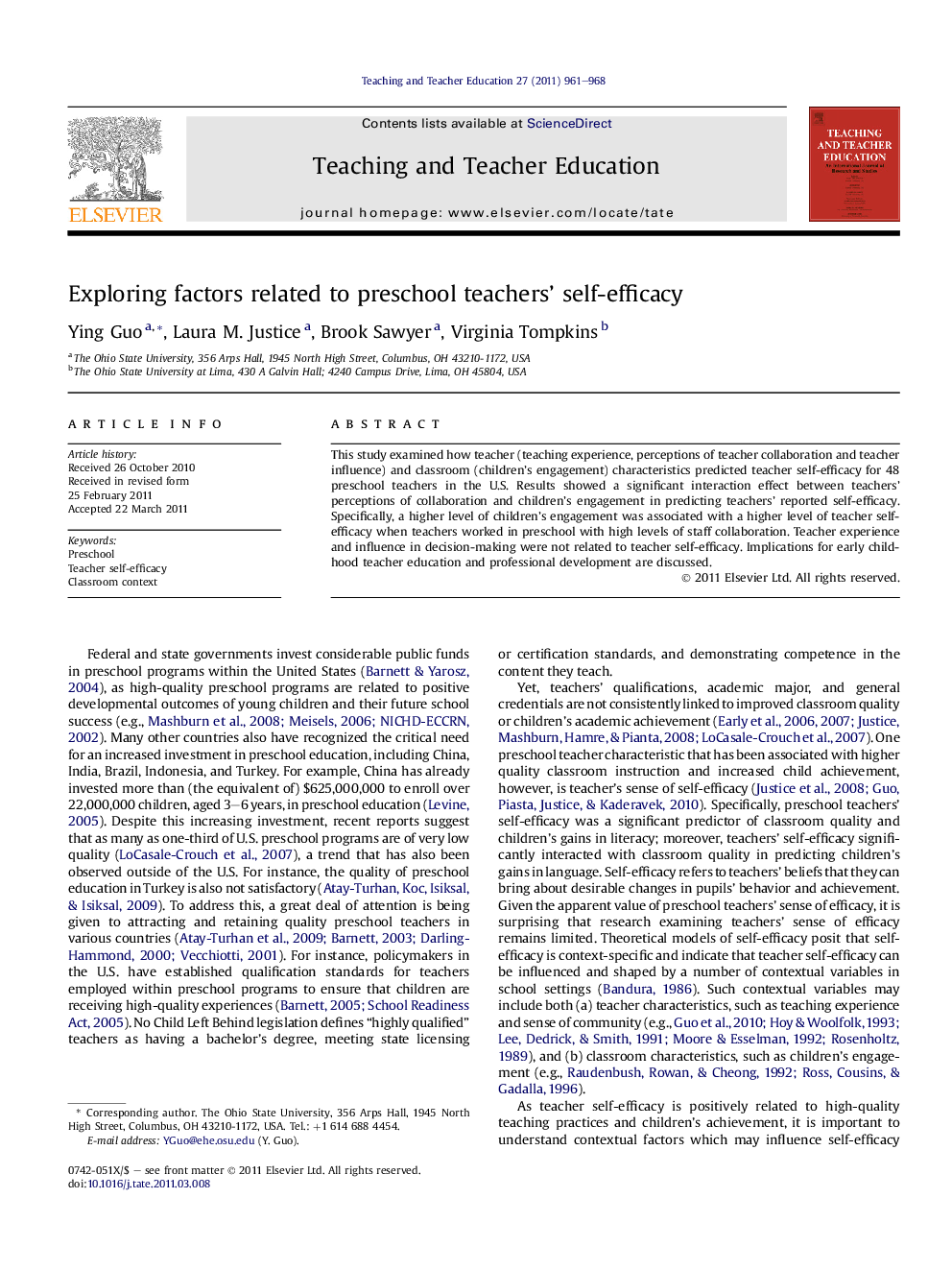| Article ID | Journal | Published Year | Pages | File Type |
|---|---|---|---|---|
| 374375 | Teaching and Teacher Education | 2011 | 8 Pages |
This study examined how teacher (teaching experience, perceptions of teacher collaboration and teacher influence) and classroom (children’s engagement) characteristics predicted teacher self-efficacy for 48 preschool teachers in the U.S. Results showed a significant interaction effect between teachers’ perceptions of collaboration and children’s engagement in predicting teachers’ reported self-efficacy. Specifically, a higher level of children’s engagement was associated with a higher level of teacher self-efficacy when teachers worked in preschool with high levels of staff collaboration. Teacher experience and influence in decision-making were not related to teacher self-efficacy. Implications for early childhood teacher education and professional development are discussed.
► Teachers’ self-efficacy is contextually situated, such that the characteristics of teachers and classrooms are associated with teachers’ self-efficacy. ► Preschool teachers’ self-efficacy was predicted by the interaction between teachers’ sense of collaboration and children’s engagement. ► Neither teachers’ teaching experience nor their decision-making influence significantly predicted teachers’ self-efficacy.
